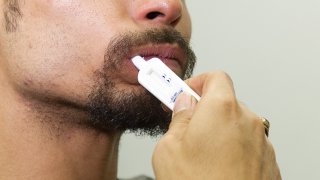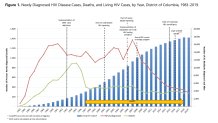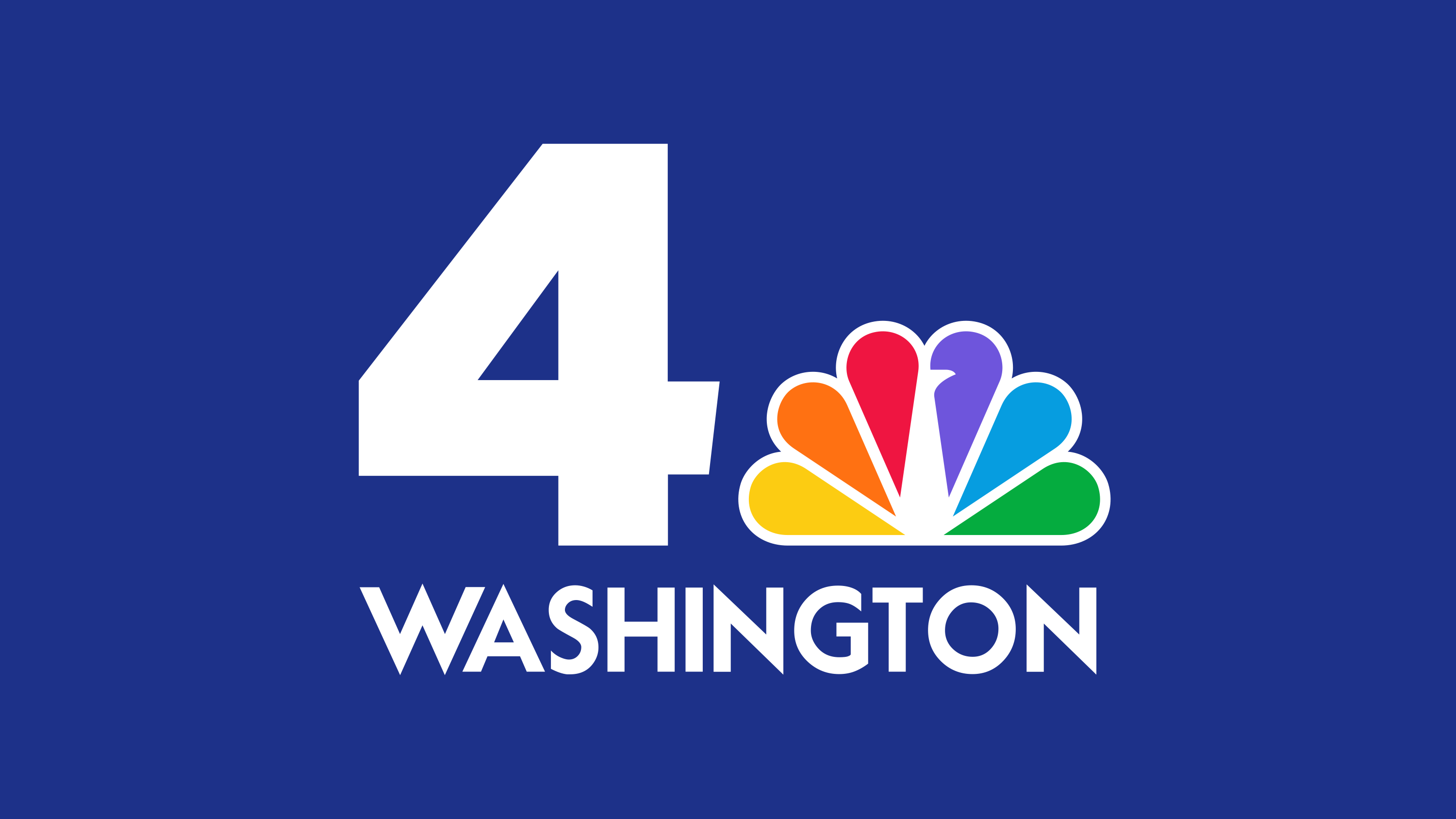
File photo. A man swabs his mouth with an HIV test in D.C. in 2012.
D.C. has made what the mayor called “good progress” in fighting the HIV epidemic, officials said Thursday. Data shows Black residents are still disproportionately affected.
Fewer people are being diagnosed with the virus and the majority of patients are treated within 90 days of learning their positive status, the city’s annual report on HIV says. The city has met the first of four goals that officials said in 2016 that they wanted to meet by this year; an estimated 90% of residents with HIV know their status.
The mayor highlighted the city’s efforts to prevent the spread of the virus and treat patients quickly, and said more is on the way.
“Our goal of ending the HIV epidemic in DC is not yet done, and we will continue to work to ensure equity in services, reduce stigma as an access barrier, make testing easier, support needle exchange and keep people HIV negative,” she said in a statement.

More than 12,000 residents have been diagnosed with HIV, making up 1.8% of the population. Black and Latino residents are disproportionately affected, with 2.8% of Black residents testing positive.
Most people known to have the virus in D.C. are Black men who have sex with men, and Black men who have sex with men and also are injection drug users. This group, combined, makes up 28% of known cases.
Black heterosexual women make up the second largest group of D.C. residents with HIV, with 16% of cases. From 2015 through 2019, men had more than 70% of cases.
Wards 7 and 8 have some of the highest virus rates in the city.
At a news conference Thursday morning, Health Director Dr. LaQuandra Nesbitt said city needle exchange programs helped significantly lower infections along injection drug users. Just two HIV cases in 2019 were attributable to injection drug use, down from 150 cases in 2007.
It’s easier than ever to get tested for HIV in D.C. Since June, the health department has offered a free, at-home test kit. You swab your mouth and get your result in 20 minutes. At-home tests for other sexually transmitted infections are set to be released this month.
To get a free HIV test kit and learn about other ways to get tested, go to getcheckeddc.org. For help with treating HIV, go to linkudmv.org.


